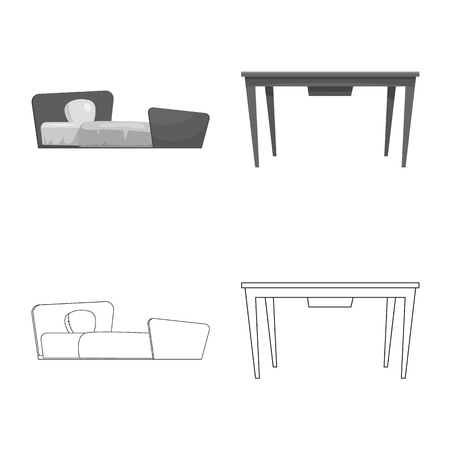Understanding Feng Shui in a British Context
Feng Shui, an ancient Chinese practice rooted in the art of arranging living spaces for harmony and wellbeing, has found resonance far beyond its origins. In Britain, where homes range from centuries-old terraced houses to sleek new-build flats, the principles of Feng Shui offer both renters and owners a fresh perspective on decluttering and spatial organisation. While traditional British interiors may feature period details, bay windows, or compact rooms shaped by urban planning history, Feng Shui’s adaptable tenets can be thoughtfully applied to these unique environments. By focusing on energy flow—known as “Qi”—and balancing elements such as light, space, and furnishings, anyone can create a more uplifting and functional home. Whether you are living in a Victorian semi-detached or a contemporary studio in Manchester, understanding how to adapt the essence of Feng Shui for the quirks and charm of British architecture is key. This approach is not about rigidly following Eastern traditions but rather about harmonising them with distinctly British sensibilities, local materials, and daily routines.
2. Decluttering for Renters and Owners: Navigating Limitations
Applying Feng Shui decluttering principles in British homes often involves balancing aspirations for harmonious living with the realities of tenancy agreements or heritage property regulations. Whether you rent a flat in Manchester or own a listed cottage in the Cotswolds, these limitations can shape what changes are possible. Here’s how to implement Feng Shui-friendly decluttering while respecting your home’s legal and cultural boundaries.
Understanding Your Boundaries
Begin by familiarising yourself with your rights and responsibilities. For renters, this means reviewing your tenancy agreement to identify any clauses about alterations, fixtures, or redecorating. Owners of heritage properties should consult local council guidelines or Historic England to ensure no protected features are altered without consent.
Common Limitations in the UK
| Limitation | Typical for Renters | Typical for Owners (Heritage/Listed) |
|---|---|---|
| Permanently removing fixtures | Usually restricted; must seek landlord permission | Often prohibited; may require listed building consent |
| Painting walls or woodwork | Usually not permitted without approval | Colours and finishes may need approval from local authority |
| Installing shelves or hooks | May be allowed if repaired on leaving | Must not damage historical features; consent often needed |
| Replacing doors/windows | Not permitted | Heavily regulated; original features protected |
Practical Feng Shui Solutions Within Limits
Declutter Surface Spaces: Focus on areas that don’t require structural change—tabletops, shelves, windowsills. Use baskets or decorative boxes to tidy away everyday items, keeping chi flowing freely.
Flexible Storage: Opt for freestanding storage units that don’t alter walls or floors. British retailers like John Lewis or IKEA offer stylish options suitable for all home types.
No-Trace Enhancements: Use adhesive hooks, washi tape, or command strips to hang lightweight décor without causing damage. This respects both tenancy and heritage rules.
Sensitive Rearrangement: Move furniture to improve natural light flow and access points, aligning with Feng Shui’s emphasis on unobstructed pathways—without any permanent alteration.
Navigating Shared Spaces and Communal Areas
If you share your home—be it a student house-share or a family-run B&B—collaborate with others before making changes. Respect communal preferences and legal obligations. Consider rotating declutter sessions seasonally so everyone is involved in maintaining positive energy.
Summary Tips for UK Renters & Owners:
- Always check contracts or planning permissions first.
- Pursue reversible changes—nothing that can’t be undone easily.
- Select décor that enhances rather than dominates your space.
- Aim for order and simplicity to support wellbeing within every room.
The key is to embrace the spirit of Feng Shui decluttering—promoting harmony and clarity—while honouring the unique context of your British home, whether rented or owned.

3. Making the Most of Small Spaces
One of the hallmarks of British living, whether you’re renting a Victorian terrace in Manchester or owning a compact flat in London, is adapting to limited space. Feng Shui, with its roots in maximising energy flow and creating harmony, can be seamlessly integrated into even the cosiest homes. The key lies in intelligent decluttering and storage strategies that work within the traditional layouts found across the UK.
Embracing Multi-Functional Furniture
When space is at a premium, every piece of furniture must earn its place. Opt for ottomans with hidden storage, wall-mounted shelving units, or beds with built-in drawers. These solutions not only reduce visible clutter but also support positive Qi (energy) movement by keeping walkways clear and rooms feeling open—an essential Feng Shui principle.
Vertical Solutions for British Homes
Many British homes have high ceilings relative to their footprint. Utilise vertical space through tall bookcases or hanging organisers behind doors. This respects the British tradition of making do and mending while aligning with Feng Shui’s encouragement to lift energy upwards, avoiding stagnation on the floor level.
Smart Zoning in Shared Spaces
For renters especially, defining areas within a single room—such as using a folding screen to separate a sleeping nook from a lounge—helps compartmentalise both function and energy. Choose light fabrics and colours typical of contemporary British decor to maintain brightness and visual calm, both vital in Feng Shui for promoting wellbeing.
Ultimately, blending clever storage with Feng Shui wisdom empowers both renters and owners to transform even the smallest British home into a sanctuary that feels spacious, organised, and energetically balanced.
4. Incorporating British Style and Sensibilities
Integrating Feng Shui principles into a modern British home requires sensitivity to the unique character of UK interiors, whether you are a renter in a Victorian terrace or an owner of a contemporary flat. The key is to harmonise classic British décor elements with the flow-oriented ethos of Feng Shui. This means respecting period features—like ornate fireplaces, bay windows, or cornicing—while also embracing the simplicity and clarity that both minimalist trends and Feng Shui advocate.
Respecting Period Features While Enhancing Energy Flow
British homes often possess distinctive architectural traits. Instead of concealing these features, highlight them as focal points but avoid cluttering mantels or sills with excessive ornaments. Keep surfaces clear to allow energy (chi) to circulate freely. If you have built-in shelves or alcoves, use them for curated displays that evoke calm rather than chaos.
Balancing Traditional and Contemporary Aesthetics
The table below illustrates practical ways to blend traditional British style with Feng Shui principles:
| British Décor Element | Feng Shui Approach | Practical Application |
|---|---|---|
| Victorian Fireplace | Focus on Fire Element; Keep Hearth Clear | Display one or two meaningful items; remove unused accessories |
| Bay Window | Maximise Natural Light; Encourage Chi Flow | Add light curtains or blinds; place a healthy plant on the sill |
| Minimalist Furniture | Simplify Layout; Avoid Blocked Pathways | Arrange seating to face doors; keep walkways unobstructed |
| Heritage Colour Palettes | Select Calming Tones; Reflect Five Elements | Use earth tones for stability, soft blues for tranquillity |
Cultural Sensitivity for Renters and Owners Alike
Whether you rent or own, respect for the property’s history can go hand-in-hand with personal expression. Use removable décor—such as textiles or artwork—to add personality without permanent change. Opt for storage solutions that echo classic British craftsmanship but serve the decluttering goals of Feng Shui. By thoughtfully merging local aesthetics with these ancient principles, your home remains distinctly British yet energetically balanced and welcoming.
5. Decluttering Rituals and Sustainable Habits
Integrating Feng Shui decluttering with the British tradition of thrift and environmental consciousness creates a modern approach that suits both renters and homeowners across the UK. The key lies in adopting small, sustainable routines that not only transform your living space but also cultivate long-term habits. Begin by setting aside a few minutes each day or week to address a specific area—perhaps a cluttered shelf, a forgotten drawer, or a neglected corner. This incremental method reflects both the Feng Shui principle of steady energy flow and the British appreciation for thoughtful, manageable change.
Practical Routines for Everyday Life
Rather than undertaking drastic overhauls, focus on regular, bite-sized actions such as reviewing mail immediately upon arrival, donating unused items monthly, or repurposing containers for storage solutions. These rituals fit seamlessly into busy British lifestyles, whether you rent a flat in Manchester or own a terraced house in Surrey. They help foster mindfulness, reduce waste, and maintain order without overwhelming effort.
Merging Tradition with Modern Sustainability
The British habit of “make do and mend” aligns naturally with Feng Shui’s emphasis on respect for objects and purposeful placement. Instead of discarding items indiscriminately, consider repairing or upcycling them—an approach that reduces landfill waste while preserving sentimental value. For example, giving new life to an old chair or transforming jam jars into organisers not only clears physical space but also supports environmental goals.
Consistency is Key
The secret to lasting decluttering success lies in consistency. Establishing rituals such as seasonal wardrobe reviews or weekly digital declutters ensures your space remains harmonious throughout the year. By making these habits part of your routine—much like the British custom of spring cleaning—you create a home environment that continuously supports wellbeing, prosperity, and peace of mind for both renters and owners alike.
6. Case Studies: British Homes Transformed
To illustrate the real-world impact of Feng Shui decluttering, let’s explore several short examples from across the UK, highlighting both renters and owners who have embraced these principles to transform their living spaces.
Renter in Manchester: Maximising a Compact Flat
Sophie, a young professional renting a city-centre flat, faced daily stress from her cluttered living room. Inspired by Feng Shui, she removed excess items blocking her windows and repositioned her sofa to face the door. By introducing plants and soft lighting, Sophie reported feeling more energised and at peace after work—her friends even commented on the improved atmosphere during visits.
Homeowner in Bristol: Revitalising a Family Home
The Patel family owned a Victorian terrace where clutter accumulated in the hallway and kitchen. Using Feng Shui principles, they cleared their entranceway and created dedicated storage zones for shoes and coats. The newfound order made mornings smoother, and the family noticed a greater sense of harmony and cooperation at home.
Renters’ Shared Flat in Edinburgh: Creating Calm in Chaos
Three university students shared a busy flat filled with mismatched furniture and study materials. After learning about Feng Shui, they decluttered communal areas, introduced mirrors to enhance light, and designated zones for relaxation versus study. This simple shift reduced tension and helped everyone focus better on their coursework.
Owner in Surrey: Garden Shed Transformation
Mark, a semi-retired homeowner, tackled his neglected garden shed by removing redundant tools and broken equipment. Adopting Feng Shui’s guidance on clear pathways and balanced space, he repurposed the shed into a creative studio. Mark credits this transformation with boosting his motivation for new hobbies.
Takeaway for Modern British Homes
Whether you rent or own, these case studies show that thoughtful decluttering—guided by Feng Shui—can bring tangible improvements to wellbeing, productivity, and relationships within any British home. The key is adapting ancient wisdom to suit local spaces and lifestyles for results that truly resonate.


